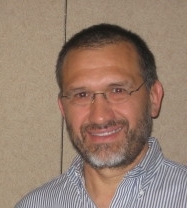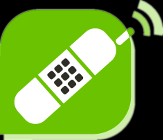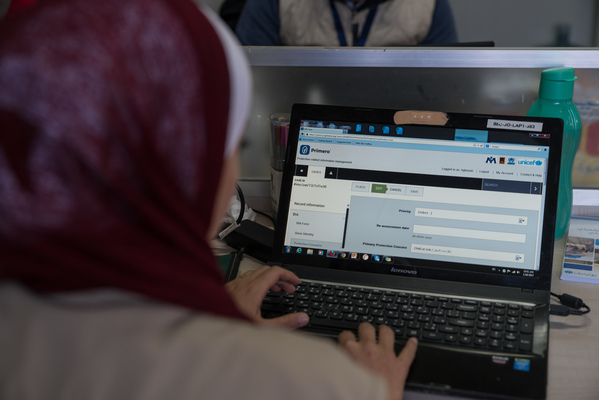data collection
See the following -
How the Shutdown Is Devastating Biomedical Scientists And Killing Their Research
The federal shutdown’s effects on science and medicine are many. There’s halted food safety inspections, kids with cancer who won’t be able to join clinical drug trials, and suspension of disease outbreak monitoring. Conservation studies have been thrown into disarray and at least one NASA Mars mission is at risk of being delayed for years. Read More »
- Login to post comments
How to Use Libraries.io Data from Millions of Open Source Projects
 What if we applied the techniques Google applied to index the internet back in 1998 to the world of open source software? That's exactly the thought Andrew Nesbitt had in 2014 which lead to the creation of Libraries.io, an open source project for indexing other open source projects. This month Libraries.io released metadata on over 25 million open source projects. You can download it right now from Zenodo, but what can you do with it? To understand what is contained within this dataset, I'll take a quick look at how it's collected. Everything in Libraries.io begins with package managers. We index project metadata from 33 package managers, filling in gaps from their source repositories where we can. We parse project manifests—a gemfile, package.json, or similar—that includes code from other projects and stores the links between them...
What if we applied the techniques Google applied to index the internet back in 1998 to the world of open source software? That's exactly the thought Andrew Nesbitt had in 2014 which lead to the creation of Libraries.io, an open source project for indexing other open source projects. This month Libraries.io released metadata on over 25 million open source projects. You can download it right now from Zenodo, but what can you do with it? To understand what is contained within this dataset, I'll take a quick look at how it's collected. Everything in Libraries.io begins with package managers. We index project metadata from 33 package managers, filling in gaps from their source repositories where we can. We parse project manifests—a gemfile, package.json, or similar—that includes code from other projects and stores the links between them...
- Login to post comments
How Wearable Electronics Will Change Clinical Trials
 Advances in sensor technology and microelectronics have opened new opportunities in the health and life sciences industries. Wearable sensors allow for continuous bio-monitoring without any manual intervention, thus reducing provider-patient interaction and costs while contributing improvements in the quality of the data...The broad adoption of biosensors by consumers, combined with advances in Nano and Cloud technologies are expected to radically change the way research is conducted by the Life Science industry, improving patient recruiting and monitoring, while lowering development and therapy cost.
Advances in sensor technology and microelectronics have opened new opportunities in the health and life sciences industries. Wearable sensors allow for continuous bio-monitoring without any manual intervention, thus reducing provider-patient interaction and costs while contributing improvements in the quality of the data...The broad adoption of biosensors by consumers, combined with advances in Nano and Cloud technologies are expected to radically change the way research is conducted by the Life Science industry, improving patient recruiting and monitoring, while lowering development and therapy cost.
- Login to post comments
Larry Ellison, NSA Database Supplier, Approves Of NSA Surveillance
Larry Ellison is exceedingly rich and powerful. He is the third-most-wealthy person in the United States and runs Oracle, the database giant. And yet somehow, as he revealed during an interview on CBS Tuesday morning, he is hopelessly uninformed on the ramifications of NSA surveillance. Or, perhaps willfully uninformed. After all, the NSA is an Oracle client, which CBS didn't mention. Read More »
- Login to post comments
Lessons from the Use of Open Source and Open Data in Nepal's Earthquake Relief
 The power of an open source project like OpenStreetMap during a crisis like Nepal's earthquake is undeniable, and I had the opportunity to see it up close and personal. I worked with the Kathmandu Living Labs team, where I observed thousands of local and international volunteers collaborating to create data and tools. Responding agencies used the team's work to plan and execute their operations. The philosophy of Kathmandu Living Labs is that by collaboratively building upon existing work, we will reach much further and have a far greater impact than working on problems individually and from scratch...
The power of an open source project like OpenStreetMap during a crisis like Nepal's earthquake is undeniable, and I had the opportunity to see it up close and personal. I worked with the Kathmandu Living Labs team, where I observed thousands of local and international volunteers collaborating to create data and tools. Responding agencies used the team's work to plan and execute their operations. The philosophy of Kathmandu Living Labs is that by collaboratively building upon existing work, we will reach much further and have a far greater impact than working on problems individually and from scratch...
- Login to post comments
Life Sciences Information Framework OpenBEL To Become A Linux Foundation Collaborative Project
New Project Will Accelerate Collaboration on OpenBEL, the Open Platform for Capturing, Integrating, Storing and Sharing Biological Knowledge in and Across Organizations Read More »
- Login to post comments
Lost To History: Missing War Records Complicate Benefit Claims By Iraq, Afghanistan Veterans
The loss of field records — after-action write-ups, intelligence reports and other day-to-day accounts from the war zones — has far-reaching implications. It has complicated efforts by soldiers like DeLara to claim benefits. And it makes it harder for military strategists to learn the lessons from Iraq and Afghanistan, two of the nation's most protracted wars.
- Login to post comments
Medicaid’s Data Gets an Internet-Era Makeover
 Jini Kim’s relationship with Medicaid is business and personal. Her San Francisco start-up, Nuna, while working with the federal government, has built a cloud-computing database of the nation’s 74 million Medicaid patients and their treatment. Medicaid, which provides health care to low-income people, is administered state by state. Extracting, cleaning and curating the information from so many disparate and dated computer systems was an extraordinary achievement, health and technology specialists say. This new collection of data could inform the coming debate on Medicaid spending...
Jini Kim’s relationship with Medicaid is business and personal. Her San Francisco start-up, Nuna, while working with the federal government, has built a cloud-computing database of the nation’s 74 million Medicaid patients and their treatment. Medicaid, which provides health care to low-income people, is administered state by state. Extracting, cleaning and curating the information from so many disparate and dated computer systems was an extraordinary achievement, health and technology specialists say. This new collection of data could inform the coming debate on Medicaid spending...
- Login to post comments
MIT's Answer to Global Health Issues: Democratizing Big Data Analytics
If you think it's hard to keep up with all the new software and hardware innovations, imagine doctors trying to stay abreast of medical advances. "While wonderful new medical discoveries and innovations are in the news every day, doctors struggle with using information and techniques available right now," writes Leo Anthony Celi, assistant professor of medicine, Harvard Medical School, in the Conversation commentary Improving patient care by bridging the divide between doctors and data scientists...
- Login to post comments
Mobile Health Around The Globe: Magpi Data Collection System Helps Thousands Worldwide
DataDyne boasts that their mobile data system, Magpi, is the fastest, easiest least expensive way to collect data on mobile devices. Read More »
- Login to post comments
Mobile Technology for Community Health (MOTECH) Suite
 Mobile Technology for Community Health (MOTECH) Suite is an open source enterprise software package designed by the Grameen Foundation to connect popular mHealth technologies to strengthen healthcare systems by streamlining patient data collection and improving patient engagement. MOTECH has the capacity to reach illiterate patient populations as well as patient populations in rural areas and works by connecting frontline worker systems such as CommCareHQ, eHealth systems such as OpenMRS and DHIS2, and communication systems such as IVR, SMS, and email to improve healthcare delivery. The MOTECH platform is designed to work effectively in low-resource settings, apply to a broad range of health domains, and meet the needs of large patient populations.
Mobile Technology for Community Health (MOTECH) Suite is an open source enterprise software package designed by the Grameen Foundation to connect popular mHealth technologies to strengthen healthcare systems by streamlining patient data collection and improving patient engagement. MOTECH has the capacity to reach illiterate patient populations as well as patient populations in rural areas and works by connecting frontline worker systems such as CommCareHQ, eHealth systems such as OpenMRS and DHIS2, and communication systems such as IVR, SMS, and email to improve healthcare delivery. The MOTECH platform is designed to work effectively in low-resource settings, apply to a broad range of health domains, and meet the needs of large patient populations.
- Login to post comments
MOTECH: How An Open Source SMS Medical Platform Is Improving Patient Engagement and Reaching Underserved Populations in Developing Nations
 Implementation of the MOTECH Suite is spreading rapidly among government health services and humanitarian organizations that address the health of potentially vulnerable or at-risk populations across the globe. As an open source solution, MOTECH affords a number of advantages for health services, particularly in low resource areas of the world. Organizations or individuals who work with software solutions to healthcare-related humanitarian issues will need to know what MOTECH is, how it works, and how it might be used to improve the health of various populations...
Implementation of the MOTECH Suite is spreading rapidly among government health services and humanitarian organizations that address the health of potentially vulnerable or at-risk populations across the globe. As an open source solution, MOTECH affords a number of advantages for health services, particularly in low resource areas of the world. Organizations or individuals who work with software solutions to healthcare-related humanitarian issues will need to know what MOTECH is, how it works, and how it might be used to improve the health of various populations...
- Login to post comments
Nature Journal on the Need for Clinical-Trial Data Sharing Regulations
 Governments need to tighten regulation if the sharing of clinical-trial data is to succeed. Clinical science has a compatibility problem. Although there are set protocols to test medicines and to treat patients, no such standards exist to compare clinical-trial data. The problem arises because each research group has a preferred method of collecting and categorizing results. Differences can be as great as omitting or including the gender and ethnicity of patients enrolled, or as mundane as the vocabulary used in medical records...
Governments need to tighten regulation if the sharing of clinical-trial data is to succeed. Clinical science has a compatibility problem. Although there are set protocols to test medicines and to treat patients, no such standards exist to compare clinical-trial data. The problem arises because each research group has a preferred method of collecting and categorizing results. Differences can be as great as omitting or including the gender and ethnicity of patients enrolled, or as mundane as the vocabulary used in medical records...
- Login to post comments
New Data Sources Fuel Understanding of Public Health Emergencies
Remember when Google search results were first used to predict the flu? Now, data from mobile phones, social media and even grocery scanners has been shown to be effective at identifying patterns in epidemics. Standard travel data collection methods, however, are limited and often provide outdated data. Mobile phones, on the other hand, are nearly ubiquitous, and can serve as a rich data resource. Call data, which automatically provides time and location details, can help in understanding human mobility...
- Login to post comments
New Open Source App Helps Protect Children Displaced by Conflict
 A life–saving service for vulnerable children caught up in crises is now available to government, aid agencies and social service workers through an open source app developed by UNICEF and its partners. The app known as Primero, facilitates the secure collection, storage and sharing of data to improve child protection, incident monitoring and family reunification services by key players in the humanitarian sector. The software is particularly crucial to the work of social workers in emergency situations to support children displaced by conflict...
A life–saving service for vulnerable children caught up in crises is now available to government, aid agencies and social service workers through an open source app developed by UNICEF and its partners. The app known as Primero, facilitates the secure collection, storage and sharing of data to improve child protection, incident monitoring and family reunification services by key players in the humanitarian sector. The software is particularly crucial to the work of social workers in emergency situations to support children displaced by conflict...
- Login to post comments